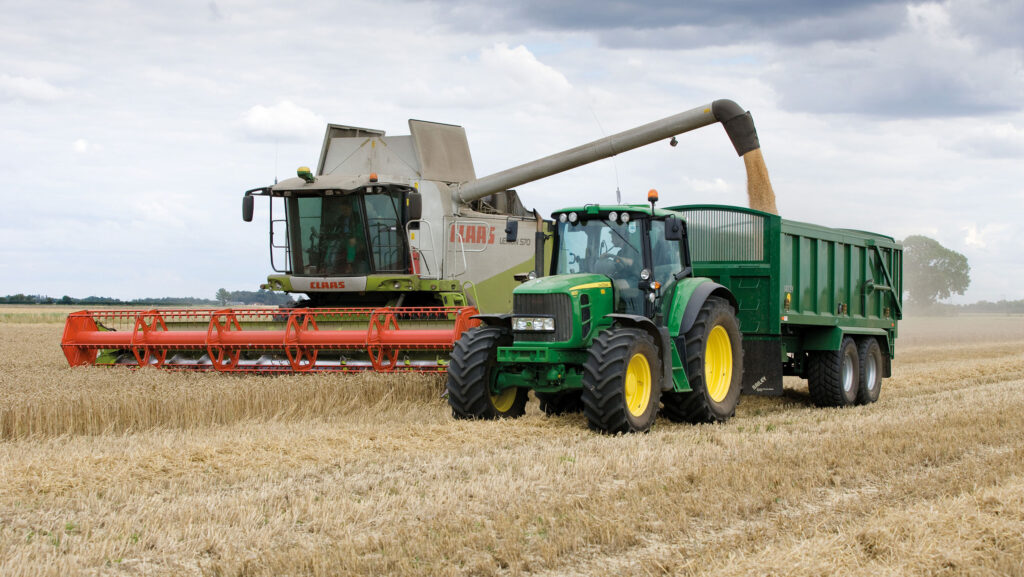Business Clinic: Should we switch to a share farming agreement?
 © Tim Scrivener
© Tim Scrivener Whether it’s a legal, tax, insurance, management or land issue, Farmers Weekly’s Business Clinic experts can help.
Here, Ted Beale, Associate Partner with Carter Jonas Rural, advises on the merits of a contract farming agreement versus a share farming agreement.
See also: Business Clinic: advice on a move to min till and return of stock to farm
Q. I own a 325ha mainly arable farm in Warwickshire. We have had the arable land farmed by a contractor under a contract farming agreement for 10 years.
It’s coming up again for renewal and we are considering changing to a share farming agreement.
Do you have any advice on making this decision?
A. Generally speaking, contract farming agreements work best for arable enterprises and share farming agreements suit those with livestock.
Contract farming was originally created to provide landowners with an alternative to a tenancy without having to farm the land themselves.
The main benefits of this were to draw on the expertise of contractors, take advantage of economies of scale and free up their own time and capital (through the sale of their machinery) while still being involved in the management of the farm.
This agreement would also create a more tax-efficient position for landowners, enabling them to prove they were still an ‘active farmer’ in order to claim agricultural property relief on their farmhouse.
With a share farming agreement, the landowner provides the asset such as the land and buildings, and their counterpart in the agreement would provide labour, knowledge, and potentially livestock.
Share farming agreements came about in the 1980s championed by the Country Land and Business Association to avoid creating a tenancy which at the time provided security for the tenant’s lifetime and potentially beyond this.
However, within a short period of time these agreements proved to be much less popular than intended and landowners preferred to use contract farming agreements.
The main issue with share farming agreements was their complexity, as each situation was unique and it created more of a partnership relationship than was potentially intended.
Profit share
Under a contract farming agreement, you have two parties, known as the farmer, and the contractor. Typically, you will pay a contractor to grow a crop on a “stubble-to-stubble basis,” so they will do the cultivations and harvest.
The contractor is paid for their work and then takes a split of the profit at the end of the harvest year.
The incentive is therefore on the contractor to do a good job, but their risk is limited as the initial payment should cover their operation costs.
A share farming agreement is more likely to suit a new entrant who wants to start their own livestock enterprise. They may approach a landowner because they don’t have anywhere to house or graze livestock.
So, instead of them paying a rent for your buildings and land, under a share farming agreement you work together, giving you both a share of the profits.
A third type of agreement is slowly gaining traction, whereby joint ventures bring together local farms in a syndicate-type structure – they spread the cost of larger, more efficient machinery over a larger acreage, while still operating the individual farms as separate businesses.
If the contract farming agreement has worked well for the past 10 years, I would advise sticking with that structure – there is not really any advantage to be gained from switching to a share farming agreement in this instance.
As the land is in an arable rotation, the share farming structure is unlikely to deliver any more benefits.
Review contract
As it is up for renewal, this would be an ideal opportunity to review the contract and update it.
If you wanted to open your options, you could invite local agricultural contractors to tender.
Over recent years we have seen a dramatic increase in the cost of inputs and a more volatile commodity market. All of this has been further complicated by the poor weather we have had over the past four seasons.
This means the contractor is likely to want a larger share of the profits to make it worth their while.
You may also need to update the terms to reflect the changes in agricultural policy, particularly following changes to the Basic Payment Scheme, Countryside Stewardship, the Sustainable Farming Incentive, and so on.
I recommend seeking expert advice when carrying out this process, as they will help you review how your business has changed since the contract was last negotiated and the best options moving forwards.
Do you have a question for the panel?
Outline your legal, tax, finance, insurance or farm management question in no more than 350 words and Farmers Weekly will put it to a member of the panel. Please give as much information as possible.
Email your question to FW-Businessclinic@markallengroup.com using the subject line “Business Clinic”.
